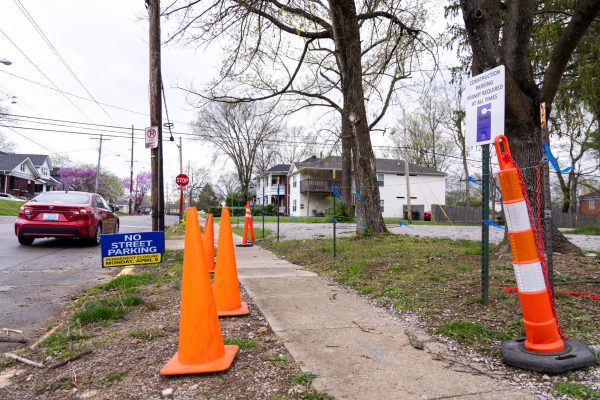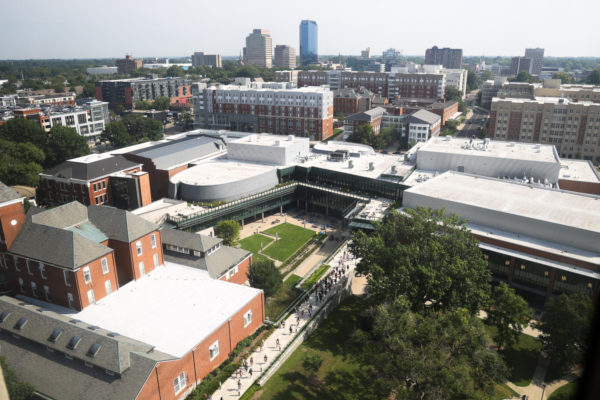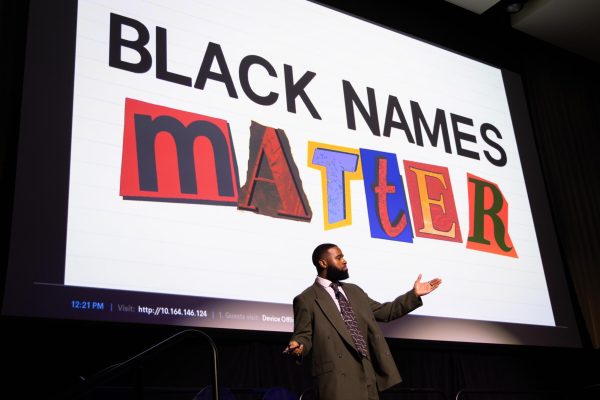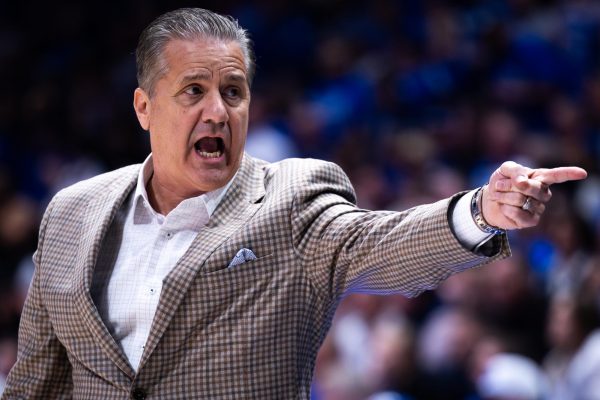Lost dreams of an American dairy farmer
May 4, 2020
In a country where you can go to a grocery store and pick up a gallon of milk for $2, it’s hard to see past the low prices and convenience to the underlying problems. The abundance of dairy products available in stores is not a reflection of the dairy industry itself. In fact, dairy as we knew it has been dying in the United States, and small family farms are hit the hardest.
John Kuegel is a generational dairy and crop farmer from Owensboro, Ky. He is the third generation to operate Old-Lyddane farms and he does so with his 18-year-old son, Josh. Despite being in an area rich with farmland, Old-Lyddane farms is one of only two dairy operations left in Daviess County, and milking herd numbers continue to fall.
Just a few years ago, Kuegel was milking roughly 150 to 160 cows in his herd. Today, he milks five.
“I think milk got down to around $9 at one point and your bills didn’t stop,” said Kuegel. “The price of cattle had gone down; quotas were put in place to stop sales of animals. It was like we were on a slow-moving train wreck where you didn’t know when to get off.”
With this decline in dairy, numerous challenges arose outside of general profitability. Hauling rates for milk became unreasonable, local vet access was unheard of since 2001, and labor was becoming difficult to find.
“When you looked at it on paper, you see all the challenges you’re up against on one side and your column for why you want to keep doing it is getting smaller and smaller, you have to look at it as a business decision,” said Kuegel.
This train came to a slow stop for Kuegel when he decided to sell off the majority of his milking herd.
“It got down to the point where I knew if we were going to make changes to move forward, then selling the milking herd was the step that had to be done to do that,” said Kuegel.
The decision was far from easy. Having grown up on the farm all his life, letting go of cows, some being offspring of family-favorites, was comparable to letting go of family members. However, the industry’s decline had forced Kuegel between a rock and a hard place.
“Keeping the business perspective is probably the hardest thing because you love your cows,” said Kuegel. “You spend a lot of time breeding them and caring for them since they were little, so just giving up on it, I’ve had a lot of friends say they felt like they’ve failed.”
Sadly, this narrative is all too familiar among small family farms in the U.S. In 2003, there were 70,375 licensed dairy operations in the United States. By 2019, that number was down to 34,187, with 2,731 less than the year before. Even dairy hubs like Wisconsin aren’t safe. The state led country in the decline, having 780 fewer operations in 2019 than 2018. At one point, the state was losing almost two operations per day, with a 4 percent decrease on a national level in 2018.
This rapid decline is a reflection of the challenges American dairy farmers face. Milk prices are down due to demand being outweighed by supplies. Even with a surge in milk prices in 2019, for many farms it was too little, too late.
“One of the hardest things is when somebody comes up to you and says, ‘How do I get ready to transition out?’,” said Kuegel. “That conversation, I’m afraid, is going on in way too many farm families right now.”
Adding to the tragedy, the problem in the industry isn’t a lack of interest.
“One of the hardest things is feeling like you’re stuck between generations,” said Kuegel. “You have one generation saying, ‘We can work through this again,’ and another younger generation that’s interested, but realizing that doing the same thing we’ve always done isn’t going to get you where you need to be.”
Kuegel’s own son, Josh, falls into this category. Having his son follow in the family tradition that’s been in place since 1937 was a dream, a dream that has since been burdened by the reality of today’s industry.
“I don’t know if I want my son to do it. He’s at an age where he’s learned the good lessons from it,” said Kuegel. “But I have to realize that the world’s open to him to do whatever he wants to do and if I’ve taught him to work hard and be honest, it doesn’t matter what he does, he’s going to be successful.”
Even though the Old-Lyddane milking herd has suffered a loss, Kuegel still owns 170 head of mainly heifers that continue to keep him occupied.
“I still have something here where I can be hands-on,” said Kuegel. “I’ve got friends who comment that, ‘All of it is gone,’ and that’s where I think your mind can get to where it hurts you.”
Kuegel is still able to experience at least some of the joy, frustration and gratification that only working with cattle can bring.
“After the sale, I left the gate open and all the heifers got out and it was like they were playing with me as I ran around to get them,” said Kuegel. “It was one of those moments where you think, ‘I still have cattle and it’s still going to be aggravating,’ but you do it because you love it.”
Throughout this transition, Kuegel has coped by relying on his faith, his family, and his trusted friends to carry him through. After a “deep breath and a pause”, he was able to work his plan and deal with the aftermath. Despite personal challenges, he keeps an empathetic view on the situation predominantly for others facing similar struggles.
“My biggest wish is that we can get some stability in our industry where the people that are working in it can make some plans for themselves,” said Kuegel.
In the future, Kuegel and his family see the transition as an opportunity to branch out. Their location right outside of a larger city allows opportunities for education purposes or potentially a small ice cream shop using milk from the few milking cows they have remaining. Either way, he looks at the decision to sell as an opportunity instead of a dead-end.
“As far as the cows, I still love them just as much as I ever did,” said Kuegel. “But we’re good, and we’re going to be fine in the future.”



















































































































































